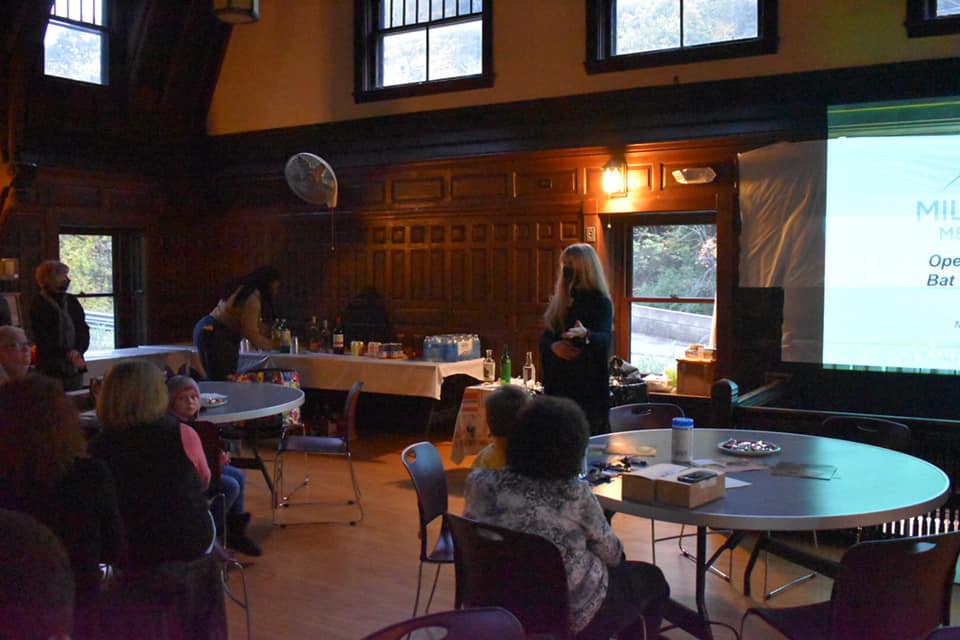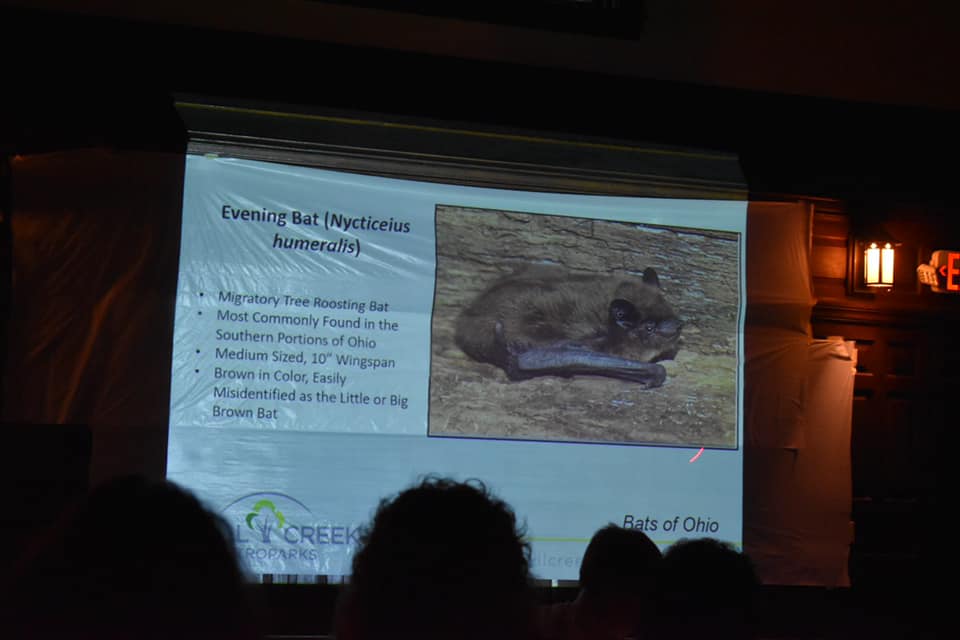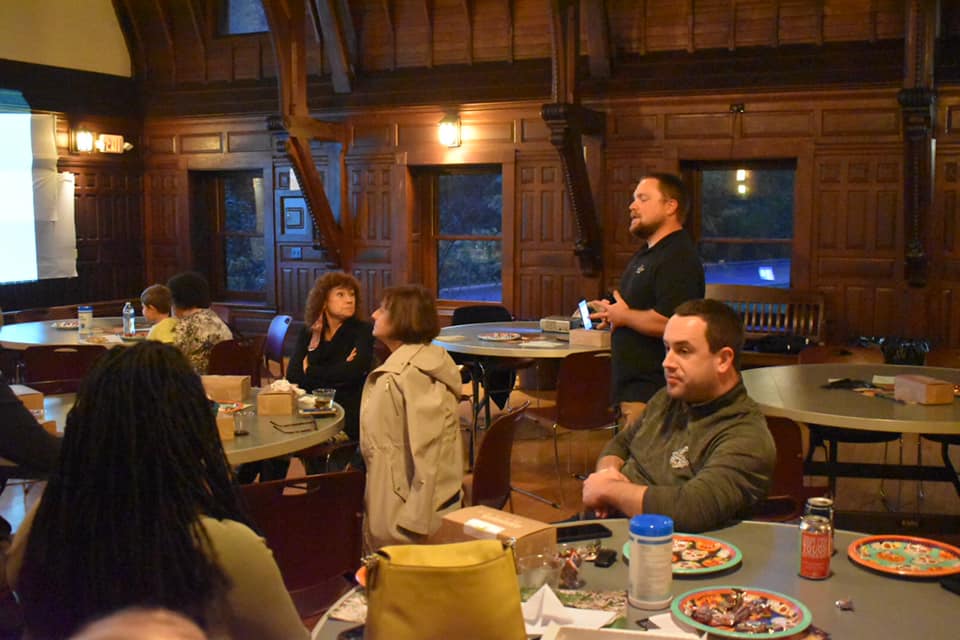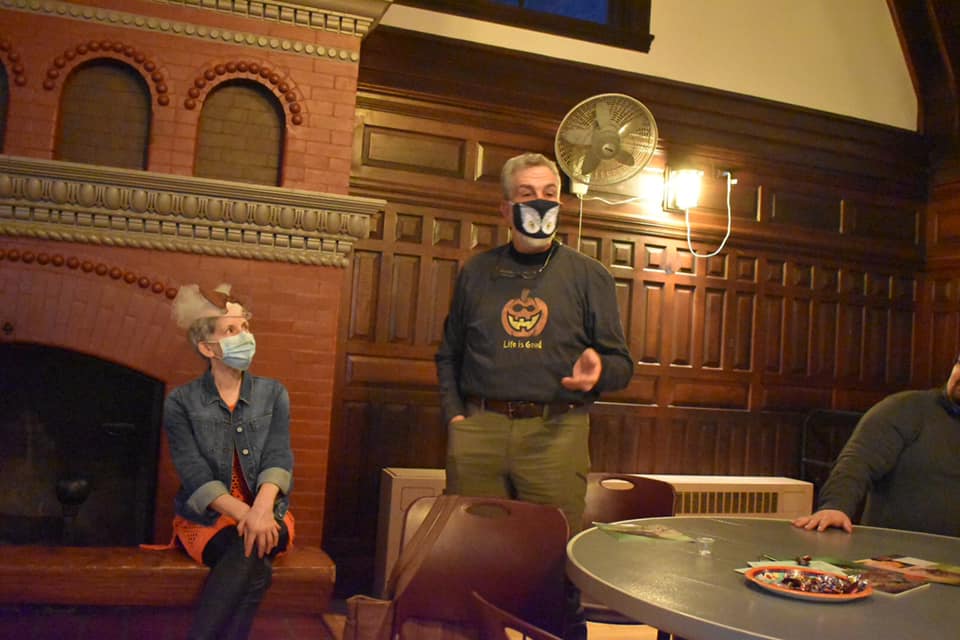Operation Pollination celebrated Bat Week

Pioneer Pavilion in Mill Creek Park proved to be a perfect venue for the October Beers, Cheers, and Gears event to celebrate Bat Week. The dimly lit pavilion had all the ambiance of a pre-Halloween celebration, complete with food, drink, and bats. Well, not live bats, but a beautiful bat house that was donated by Jeff Harvey of Wild Birds Unlimited. The bat house was raffled off, and was won by Larry Bozick.
A crowd of about 35 guests enjoyed a presentation about bats from Nick Derico, Natural Resources Steward for Mill Creek MetroParks, who answered many well-thought out questions afterwards. Most bats that are native to Ohio eat insects, and can consume up to their body weight in insects each night. Eating all these insects helps protect food crops and forests from insect pests, saving farmers and forest managers billions of dollars each year.
And yes, there are vampire bats that feed on the blood of animals. There are only three species that feast on blood, and two of these specialize in bird blood. For the most part, the animals don’t even know the bats are using them as a food source, as their very sharp teeth act like pin pricks to draw out the blood, which the bats then lap up like your family dog drinks water.
Bats are in decline nearly everywhere they are found. These creatures face a multitude of threats, including habitat loss, pesticide use, destruction of roost sites, climate change, and more. Worldwide, about 24% of bats are considered critically endangered, endangered, or vulnerable. Bat numbers in the US and Canada have declined dramatically as White-Nose Syndrome, a new disease, has killed over six million bats in just eight years. This, along with the issues listed above, has cause serious decline in bat populations in North American as well as around the world.
Bat Week is an international, annual celebration designed to raise awareness about the need for bat conservation. Bats are amazing creatures that are vital to the health of our natural world and economy. Although we may not always see them, bats are hard at work all around the world each night, eating tons of insects, pollinating flowers, and spreading seeds that grow new plants and trees.



